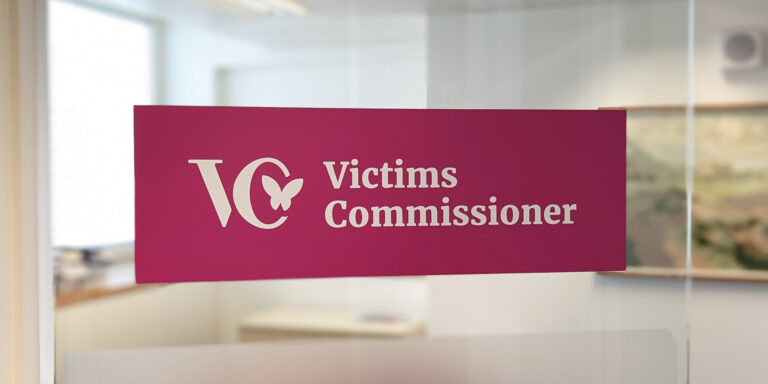Sentencing Bill: ‘any new sentencing framework must deliver stability, transparency, and above all, public safety’

“Public safety is paramount,” said Baroness Newlove. “To ensure these important reforms command public confidence, it's vital we place the well-being of victims at their heart, and I'm keen to work constructively with the government to make sure these safeguards are robust and effective.”
The Victims’ Commissioner for England and Wales has responded to the government’s new Sentencing Bill, welcoming the commitment to a sustainable strategy but warning that victim safety and confidence must be the central test of the reforms.
Reacting to the proposed legislation, Baroness Newlove recognised the difficult decisions facing the government on prison overcrowding but stressed that any new sentencing framework must deliver stability, transparency, and public safety to rebuild trust that has been eroded by emergency release schemes, and systemic issues across the justice system.
The new Sentencing Bill, which follows the Independent Sentencing Review, chaired by David Gauke and published in May 2025, introduces an “earned progression model” which will see many offenders released after serving one-third or one-half of their sentence in prison. It also creates a presumption that prison sentences of 12 months or less will be served in the community.
In her statement, Baroness Newlove urges the government to address key outstanding points as the Bill progresses through Parliament. This includes:
- Clarity on short sentences: Short sentences are a critical tool for providing a “vital period of respite” to victims of domestic abuse, stalking, and harassment. While the Victims’ Commissioner welcomes that judges will retain the discretion to apply them, she warns that the ‘exceptional circumstances’ criteria is “too vague” to adequately ensure victims are protected.
- Early release and supervision: The statement calls for urgent clarification on what ‘earned early release’ and ‘good behaviour’ will mean in practice. She also highlighted that probation services must be given stronger tools to manage high-risk offenders, including the flexibility to extend supervision and recall dangerous offenders.
- Rebuilding faith in community sentences: Acknowledging that many victims have lost faith in community sentences, Baroness Newlove insisted there must be a “real commitment to monitor and enforce them.” Crucially, she called for victims to be consulted in a meaningful way on the conditions attached to an offender’s community order.
- Improving transparency: To help rebuild victim confidence in the justice system, the Commissioner reiterated her call for all victims whose case is heard in the Crown Court to be given a transcript of the judge’s sentencing remarks.
Responding to the Sentencing Bill, the Victims’ Commissioner for England and Wales, Baroness Newlove, said:
“I recognise the difficult decisions the government faces on prison overcrowding and welcome the Lord Chancellor’s commitment to a sustainable sentencing strategy. Public safety is paramount. To ensure these important reforms command public confidence, it’s vital we place the well-being of victims at their heart, and I’m keen to work constructively with the government to make sure these safeguards are robust and effective.
“Continual adjustments to sentences through emergency release schemes have eroded public confidence. To rebuild that trust, especially for victims, any new sentencing framework must deliver stability, transparency, and above all, public safety.
“It’s promising that the new Sentencing Bill broadens the Sentencing Code to directly reference protecting victims as a purpose of sentencing. However, the proof will be in the detail. I’ll be scrutinising the Bill’s provisions closely to ensure they deliver on that promise.
“Judges must retain the discretion to use short sentences. For victims of crimes like domestic abuse, stalking, and targeted harassment, these sentences provide a vital period of respite. The Bill’s current threshold of ‘exceptional circumstances’ is too vague and needs to be made more explicit to ensure victims are consistently protected.
“The legislation is also currently unclear on what ‘earned early release’ or ‘good behaviour’ actually means. This needs urgent clarification. The determining factor must be an offender’s genuine risk to the public, not simply their compliance with prison rules.
“When it comes to high-risk offenders, probation must have the right tools to protect the public. This means giving them the flexibility to extend supervision for the full duration of a sentence and the authority to recall offenders promptly. The proposed fixed-term recall arrangements remain a concern, as some offenders are simply too dangerous for a short recall period. The Bill currently lacks these vital safeguards, and I’ll be pushing hard to ensure they are included.
“A key test for this Bill will be whether it rebuilds victim confidence. This means treating victims as participants, not merely onlookers. Many have lost faith in community sentences, so there must be a real commitment to monitor and enforce them. Crucially, victims should be consulted in a meaningful way on community order conditions.
“Improving transparency is also vital. That’s why all victims whose case goes to the Crown Court should be given a transcript of the judge’s sentencing remarks.
“I urge the government to consider these points as the bill progresses. I look forward to continuing my constructive dialogue with the Lord Chancellor to help shape a sentencing regime that builds public confidence and, above all, keeps victims safe.”
- Read the Victims’ Commissioner’s June 2025 letter to the Lord Chancellor on the Sentencing Review.
- View the Sentencing Bill, laid before Parliament on 2 September.
